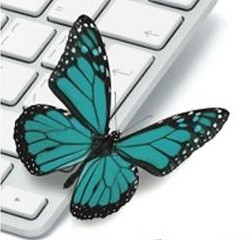A narrative about ethics in the 21st century
From early on, numerous philosophers, religious leaders and lawmakers have defined ethical value systems for their societies. Each time, the standards were set - at best - by empathy-driven individuals, after thorough reflections, but could also - at worst - be set by the most powerful and cruel leaders (see red organizations; "tribal, impulsive"). In the following we examine ethics in the important evolutionary steps of human civilization in parallel with its organizational models (Laloux 2014):

Ethics in tribes
In any ways, tribal organizations (“red”, “impulsive”) adjusted their ethical rules to the views of their leader and usually limited their radius of empathy to their own group. Often native cultures, traditional families but also mafia clans were organized that way. It was the native behavior in groups of humans that we think our species has developed in its early history (see i.e. Wade 1996).
The rise of centralized institutions
Later, centralized institutions (amber organizations; "traditional", "conformist") came up with a new evolutionary step for ethical standards. Those standards were not legitimized by personal power of the institutions leader anymore, but rather by the fundamental believes or the power of the organization as a whole (church, nation, company). The rules could be imposed within the organization and its members had to accept them as their common sense.
Ethics in today’s society
The next stage refers to modern organizations, where performance and efficiency are the new ideals (orange paradigm; "modern, meritocratic"). With their vivid cognitive capacity, people can imagine different worlds and hence question authority, group norms and all former ethical standards . The understanding of right or wrong is often measured in monetary success (i.e. oligarchic society). Consequently, we see in our globalized world that ethical standards tend to be diluted. It becomes obvious that the different stages can be mixed within a society.
What if in the future ethics would be as follows?
In the postmodern green paradigm, ("postmodern, pluralistic"), we have to admit each individual's ability to create its own ethical values from their intuition, personal experience and cultural background. In principle everyone should be given the responsibility to decide on his ethics, but he or she is well advised to take the opinion and perspective from the relevant people around into account. Also past perceptions of ethics can still be relevant in the pluralistic views context (i.e. there are still states that enforce a certain ethical view by their law).
It is an interesting vision for a future where we can all have room.
Congratulations @pyroman! You have completed some achievement on Steemit and have been rewarded with new badge(s) :
Click on any badge to view your own Board of Honor on SteemitBoard.
For more information about SteemitBoard, click here
If you no longer want to receive notifications, reply to this comment with the word
STOPCongratulations @pyroman! You received a personal award!
You can view your badges on your Steem Board and compare to others on the Steem Ranking
Vote for @Steemitboard as a witness to get one more award and increased upvotes!